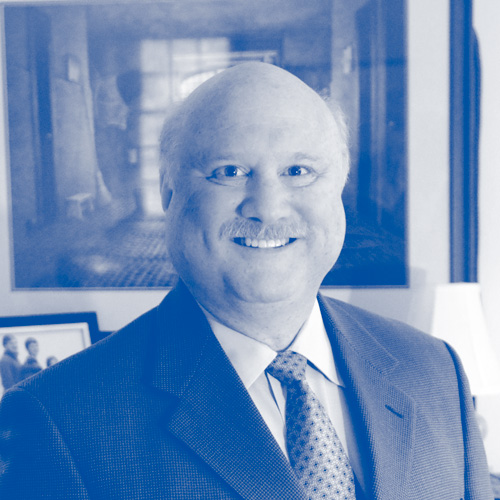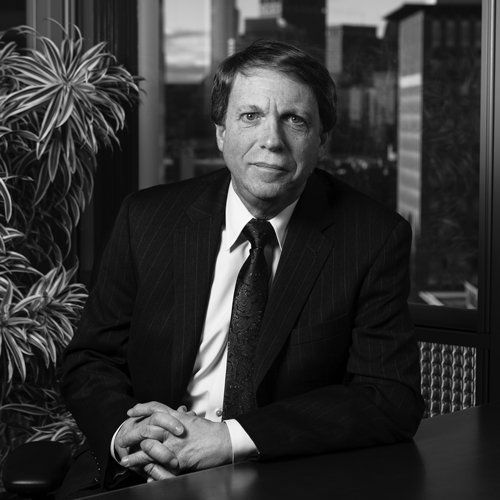Four years out of law school, Dan Lett was on track to make partner at a St. Louis legal firm when he got a phone call from the CEO of Bunzl Distribution, a leading provider of supply chain solutions in North America. This was in 1998, seventeen years after parent company Bunzl plc established North American operations as Bunzl Distribution. The business area had expanded through acquisition and was organically producing roughly $1.5 billion in annual revenue, which created enough legal needs to warrant the opportunity for an in-house lawyer.
Upon offering the role to Lett, the CEO asked, “What would you like your title to be?” Ready to seize the opportunity, Lett replied, “How about general counsel?”
Nineteen years later, Bunzl Distribution has nearly quadrupled its annual revenue, and Lett remains general counsel at the helm of the company’s legal needs in North America.
A HISTORY OF BUNZL’S MAJOR ACQUISITIONS
1981: Bunzl plc enters the North American market by acquiring Jersey Paper.
1983: The company purchases St. Louis-based PCI/Mac Pak Group, establishing its distributor base east of the Rocky Mountains to become the largest disposables distributor to the US supermarket industry.
1987: Bunzl reaches coast-to-coast coverage by purchasing Papercraft.
1994: Bunzl acquires Marstan Industries, establishing the company’s presence in the foodservice industry.
1997–1998: The company purchases the grocery supply systems division and related US grocery supply businesses from Unisource Worldwide.
2000—2001: Bunzl enters the food processor segment through the purchase of Koch Supplies and Packers Engineering & Equipment.
2004—2006: The company enters the convenience store, retail, and safety segments by acquiring TSN, Retail Resources, and United American Sales.
2013—2016: Bunzl adds several branded safety businesses to its portfolio and significantly expands its Canadian businesses.
Nowadays, Lett spends the majority of his time planning and leading Bunzl Distribution’s acquisition effort, which is still the company’s principal growth strategy. Because acquiring companies involves more risk and cost in comparison to producing organic growth, Lett and his team follow a well-thought-out acquisition process.Over the past thirty-six years, Bunzl Distribution has acquired nearly one hundred businesses, representing two-thirds of the company’s growth over time. The CEO who hired Lett had been a CEO of an acquisition, a trait shared by his successor, current president, and CEO Patrick Larmon. When Larmon took the reins as CEO in 2004, he appointed Lett to lead the company’s corporate development strategy.
“It’s key to our success,” Lett explains. “We’ve developed a good, repeatable model that begins with targeting companies that fit with our strategy, followed by a rigorous due diligence effort, exploration of compatibility, and a thorough integration plan.”
This integration plan is key for Bunzl Distribution because, as Lett explains, “when you buy a company, you’re acquiring people—not just hard assets.”
“As a business, we can always lease more buildings, rent more trucks, and buy more inventory, but what truly makes a company valuable is its employees,” he continues.
This mind-set guides Bunzl Distribution’s approach to all of its relationships: external, internal, and potential. The company pays careful attention to the people, culture, management team, and values of potential acquisitions. Before closing a transaction, Lett and his team prioritize communication and onboarding plans for all new employees as well.
“When their workplace is acquired, employees tend to be less concerned with whether the change will be good for the business and more concerned about whether it will be good for their lives,” Lett says. “We do our best to alleviate that anxiety by first communicating where their place will be in the plan. Once we’ve done that, then we can take care of the business.”
This approach has garnered much success for Bunzl Distribution and has allowed the company to protect the integrity of its culture and values in the midst of exponential growth. “One of the things we teach our team is to treat our acquired employees as customers, because they’re doing something right or we’d already have their customers’ business,” Lett explains. “We’re essentially buying into their success instead of competing against them in the marketplace.”
Gaining a new business partner is celebrated at Bunzl, and protecting the unique keys to its success is part of that. “We don’t want to make them so much like us that we lose what we were missing without them,” Lett says. “In fact, we’ve taken some things learned from acquired companies and implemented them across the rest of the company.”
A merger with Bunzl is also celebrated by those owners and managers of acquisitions who want to stay with their companies after selling because Bunzl Distribution offers the opportunity to continue running their companies with greater resources. This kind of integration and diversity has not only allowed Bunzl to grow its revenue in its original two business segments—grocery and food service—but has also allowed the company to enter new markets.
It was in the 1990s that Bunzl Distribution’s practice was to approach similar business targets and roll them into the Bunzl platform. These were lower-risk transactions, but boosted small acquisitions from average to high performers. However, due to its high closing rate, cash payments, and post-closing success, companies outside the original segments soon recognized Bunzl Distribution as an attractive buyer and a great steward and investor.
As a result, companies began approaching Bunzl Distribution with purchasing proposals, and thanks to a strategy favoring market diversification, the operation now targets high-performing, quality companies in six different business segments. “We’ve changed our M&A approach because we’re looking at different kinds of companies,” Lett says. “Thanks to new acquisitions in new areas, we are able to deliver many more value-added products and services to our customers.”
Regardless of the segment, Lett and his team are careful to look for companies that fit within set parameters: business-to-business organizations in resilient, growing markets with a fragmented customer base; quality management teams that want to remain with the business after acquisition; attractive financial returns; new markets and geographies; and especially businesses with substantial innovation in products, brands, and services. These days, the company doesn’t have to look far to find them, and it often works fast to keep them.
For example, by the end of October 2012, Lett’s team had already completed three acquisitions, had two more in process, and had received a call from the largest potential acquisition in Bunzl Distribution’s history. The owner wanted to sell, but only if the deal could be done by the end of the year. Lett was confident in his team, and Larmon agreed. After weeks of hard work, forsaken vacations, and no time off save Christmas day, both the major acquisition and the other two in process closed on December 28.
“Pulling that off was a pinnacle for our team and a tremendous win for our company, customers, and shareholders,” Lett recalls. “It was a testament to what a strong team can accomplish together.”
During Lett’s tenure, Bunzl has grown from $1.5 billion to nearly $6 billion in annual revenue and has expanded from two business segments to six. Meanwhile, his legal department has grown from one to four attorneys. Through it all, Bunzl Distribution has maintained its entrepreneurial culture, stayed true to its strategy and, most importantly, championed the value of the people and relationships that make the company what it is today.
These characteristics, along with the investment the company made in him personally, have made Lett proud to be general counsel for the past nineteen years. It inspires him to forge ahead as Bunzl Distribution continues to seize opportunities in years to come, which is not going unnoticed.
“Bunzl’s successful growth has been achieved, at least in part, through acquisitions,” says Bob Tomaso, office managing partner at Husch Blackwell. “Dan’s strengths are in identifying culturally compatible strategic business partners and conducting thorough due diligence to ensure the success of the acquisition. We at Husch Blackwell are proud to be a part of that process for Dan and Bunzl.”


